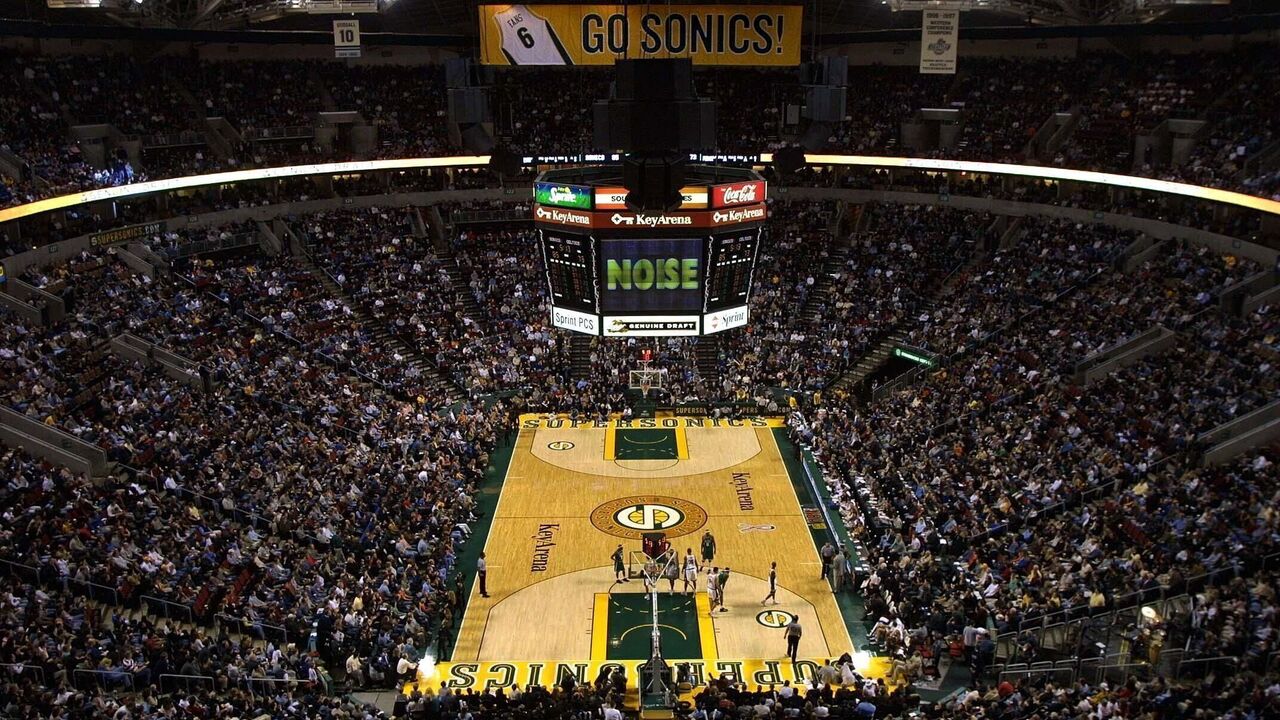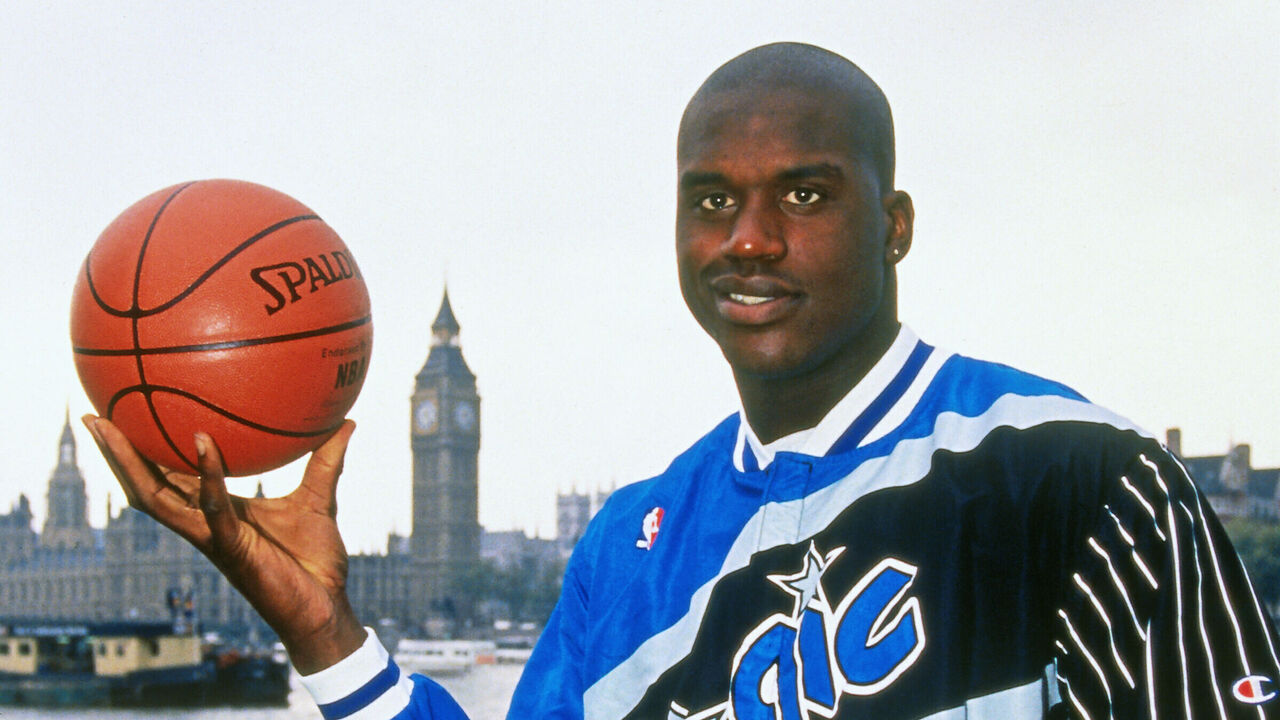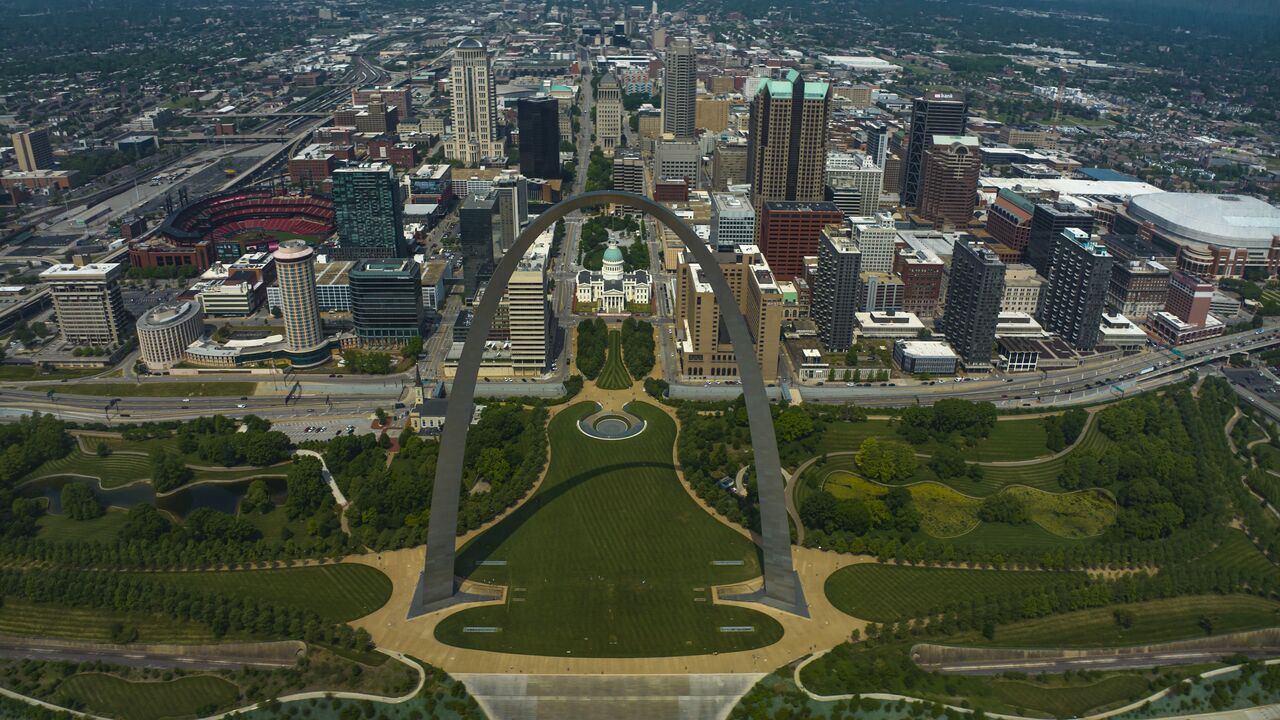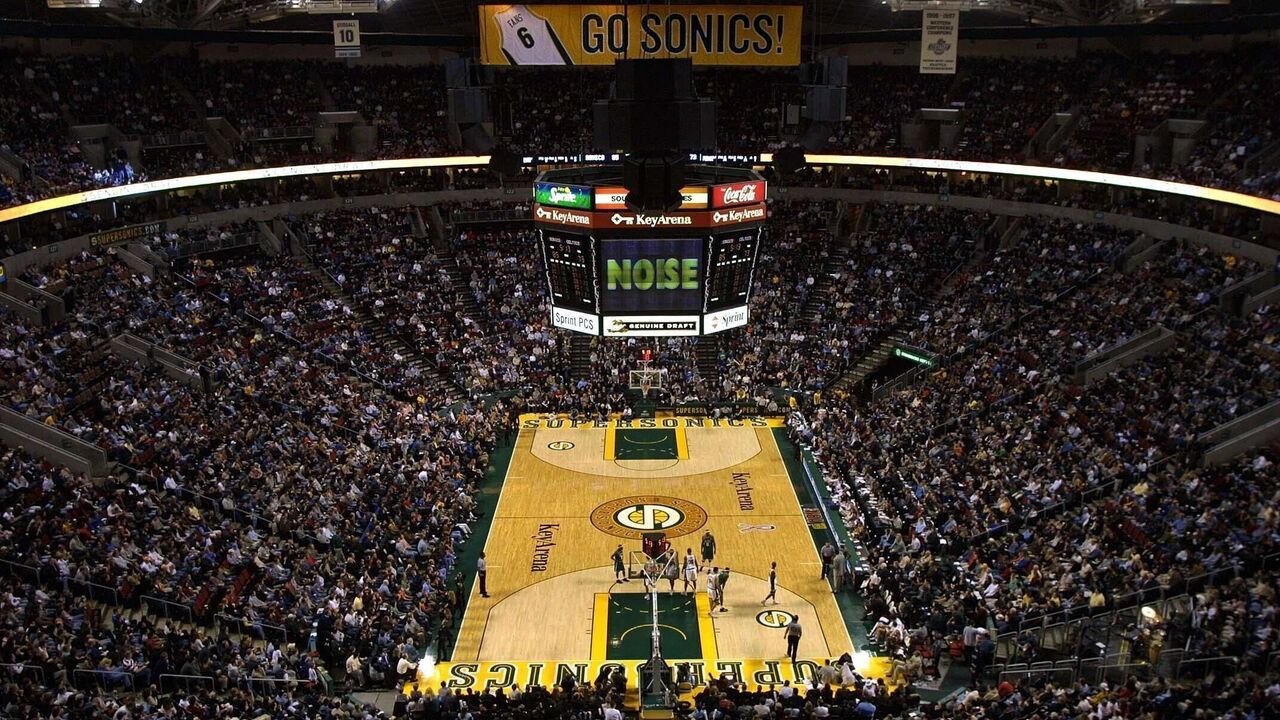Eyeing expansion: Examining potential future NBA franchises
When asked recently about the NBA’s growth, Phoenix Suns star Kevin Durant claimed the league could expand on its 30 franchises.
“The NBA is so huge, but I don’t know if the other owners would want to split that up amongst new teams, things are going so well. But yeah, I feel like there could be four or five new teams,” Durant said in late July. “Everybody loves basketball.”
Durant would know better than most, especially after spending the first season of his illustrious career in basketball-mad Seattle before the SuperSonics franchise moved to Oklahoma City.
Even NBA commissioner Adam Silver seems partial to the idea, saying the league could explore expanding for the first time since 2004 when the current media rights deal lapses in 2025.
With this in mind, here’s a look at five cities for the league’s next round of expansion:
Seattle

- Metro population: 4.1 million
- Other major franchises: Seahawks (NFL), Mariners (MLB), Kraken (NHL), Sounders (MLS), Storm (WNBA)
- Potential existing stadium: Yes – Climate Pledge Arena
- Potential teams names: SuperSonics
Despite admitting the league hasn’t begun the formal process of exploring expansion franchises, Silver said he’s aware of the enthusiasm for the sport in Seattle. “There’s no doubt there’s enormous interest in Seattle. That’s not a secret,” Silver said.
The Storm had the highest WNBA average attendance in 2022 and was the only outfit to average more than 10,000 tickets sold per contest. That amount is in excess of 2,000 more tickets than the next highest organization (Phoenix Mercury).
Of course, talking about basketball in Seattle can’t be done without mentioning the SuperSonics, who competed in the NBA from 1967-2008. The franchise compiled a 1,745–1,585 (.524) regular-season record across their 41 campaigns, winning three Western Conference titles and the 1979 NBA Finals.
Whether a potential expansion side in Seattle could strike a deal with the Kraken to become co-tenants of the Climate Pledge Arena remains to be seen, though it’s safe to assume public money won’t be involved. The SuperSonics moved after the owners failed to secure public funding for a new facility to replace the outdated KeyArena.
Verdict: It’s time to bring basketball back to Seattle, one of the most qualified cities for an expansion franchise. Between the interest from the region and the NBA, the success of the WNBA’s Storm, and the lengthy SuperSonics’ track record, the largest city in the Pacific Northwest and the biggest NBA-less media market in the country checks every box.
Las Vegas
- Metro population: 2.26 million
- Other major franchises: Raiders (NFL), Golden Knights (NHL), Aces (WNBA)
- Potential existing stadium: Yes – T-Mobile Arena
- Potential team names: Outlaws, Spades, Venom
There probably isn’t an NBA-less city that’s as big of a basketball hub as Las Vegas. Between the Summer League in July, Team USA’s practice facility used for highly anticipated exhibition games, and a growing Aces team that leads the WNBA in wins and attendance this season, there’s no shortage of hoops in the area.
Expansion is nothing new for Las Vegas. The city has gone from zero major professional sports franchises in 2017 to having the San Antonio Stars relocating and becoming the Aces, the Oakland Raiders also moving there, and the Golden Knights joining the NHL as the league’s 31st team.
Finding an owner willing to take the organization on shouldn’t be much of an issue. Mark Davis, who owns the Raiders and Aces, worked with the NBA to secure his bid for the WNBA franchise. The team’s minority owner is none other than football icon Tom Brady, a close friend of basketball star LeBron James, who has also expressed interest in owning a team, specifically in Las Vegas.
Davis, Brady, and James share a reported net worth of $3.5 billion and would not only be the most star-studded ownership group in the league but perhaps any sports franchise in North America.
Verdict: While Seattle may make the most sense for an expansion team from a city perspective, there’s no denying the added features a franchise in Las Vegas would bring. Much like the entertainment options up and down the Vegas Strip, an NBA team in Sin City would be a can’t-miss event for tourists, locals, and NBA fans alike. If Seattle is the top option for expansion, then Las Vegas is the 1B.
London

- Metro population: 14.8 million
- Other major franchises: 0 (in North American sports)
- Potential existing stadium: Yes – O2 Arena
- Potential team names: Monarchs, Towers, Guards
London’s immense population and global reach would make it a marquee international basketball hub if an NBA franchise ever formed in the world’s largest predominantly English-speaking city outside of New York and Los Angeles. But there are a couple of giant issues.
For one, a London team would be exceptionally far from the rest of the NBA – an entire continent and ocean away. Even when NFL teams travel to the United Kingdom for the occasional regular-season game, they almost always opt to take their lone bye week to ease the return home. Logistically fitting in a way to play 41 home games across the pond in a league that plays every one to three days would be an absolute nightmare.
Perhaps there could be workarounds one day, but there doesn’t seem to be anything imminent on that front. A hypothetical London team could play some of its home games in the U.S. and host clubs for multiple games at a time. However, that would largely defeat the purpose of having a team based overseas, and the lengthy travel and time away from home would likely create issues with the players’ association.
This is all before even mentioning whether there would be interest in basketball among English fans. Soccer rules the sporting landscape in the area, and basketball is largely seen as an afterthought. After all, Great Britain is ranked No. 48 in men’s hoops and No. 20 for the women. The London Lions are the city’s main basketball attraction. Although the team won the BBL title this season and competed in the EuroCup, it played in just a 6,000-person arena.
Verdict: Bringing an international home base to the NBA would certainly fit the league’s dramatic and ongoing growth worldwide. But it also comes with a handful of unique challenges that don’t apply to other potential expansion cities. While London’s prestige as a global hub is undoubtedly a major positive, the sheer logistical challenge on top of a possible lack of interest makes this too hard an option to see fit.
Mexico City
- Metro population: 21.8 million
- Other major franchises: 0
- Potential existing stadium: Yes – Mexico City Arena
- Potential team names: Diablos, Aztecas
The NBA looks determined to move into Mexico City eventually. In 2019, the league added pre-existing Mexico City club Capitanes to the G League in what appears to be a viability experiment. The NBA has also scheduled occasional regular-season games in town, seemingly gauging the population’s interest. To be fair, if such a bold move were to go through, the possible upsides could be incredible for the league and outweigh the risks.
Like Toronto after the Grizzlies moved from Vancouver to Memphis, Mexico City has the potential to garner support from all over Mexico as the nation’s sole NBA representative. But even without fervent backing outside the capital, Mexico City is home to a massive population of approximately 9 million in the city alone, which would immediately make it the most populous city in the NBA. That number swells to a whopping 21.8 million if you include the Greater Mexico City area.
But such a development isn’t without caveats. Mexico City isn’t exactly close to the U.S. border like Toronto is up north. Even San Antonio – the closest NBA franchise in this scenario – is a two-hour flight over the Gulf of Mexico. It’s not “Golden State Warriors and Boston Celtics in the 2019 Finals” levels of air miles, but some teams, like the Celtics or a hypothetical Seattle franchise, may not love the distance added to their seasons.
The other issue at play is the altitude. Mexico City is about 7,350 feet above sea level, which easily clears Denver’s 5,275 feet. If road teams struggle to keep the reigning champion Nuggets in check now, Mexico City could be overwhelming.
Verdict: If the league is content with its Capitanes-G League experiment after its trial period, Mexico City will likely be home to a proper NBA franchise soon after. But the bold move is far from a lock, even if the league is fixated on the densely populated capital city. Several variables are still in play, and the lingering aftermath of the pandemic may muddle a definitive answer for at least a few more years.
St. Louis

- Metro population: 2.81 million
- Other major franchises: Three – Blues (NHL), Cardinals (MLB), St. Louis City SC (MLS)
- Potential existing stadium: Yes – Enterprise Center
- Potential team names: Arches, Bears
There hasn’t been a lot of significant chatter about the NBA foraying into St. Louis, though that could change in the near future. If the city gets serious about tossing in its name, they’ll immediately have two very discernible reps in stars Bradley Beal and Jayson Tatum, who have long voiced support for a hometown franchise.
But even without a pair of prominent promoters, St. Louis boasts its own merit. It ranks 24th among largest U.S. TV markets, according to Nielsen’s 2022-23 rankings. If you discount Seattle (an apparent lock for expansion), Tampa (located only a couple hours from the Orlando Magic), and Raleigh (home of several major college sides with the Charlotte Hornets also close), then St. Louis is the biggest American TV market that has yet to home an NBA franchise. It helps that the rest of Missouri is empty, too.
A team in St. Louis also has plenty of aesthetic potential, as evidenced by its existing major franchises. The Blues’ clean and unique blue-yellow-black motif is one of the most recognizable in the NHL, while the Cardinals’ iconic red script adorns one of baseball’s best jerseys. An NBA franchise would have no shortage of solid design inspiration.
Finally, St. Louis is a city of recent winners. The Blues claimed the Stanley Cup in 2019, the Cardinals won the World Series twice this century (2006 and 2011), and St. Louis SC – in its inaugural MLS season – sits in first place in the Western Conference and ranks 10th league-wide in average attendance, per Transfermarkt. St. Louis is also no stranger to basketball, with two previous NBA franchises in the Bombers (1949-50) and the Hawks (1955-68). The city also had an NFL franchise, the Rams, but perhaps the less said about that, the better.
Verdict: St. Louis appears to check all the boxes for a suitable home for professional basketball. The city is also within a relative dead zone NBA-wise, with the Indiana Pacers the closest opposition at about 240 miles away, or a 3.5-hour drive. That said, St. Louis doesn’t currently seem to be a priority for the league. It may be a couple of expansion cycles before it emerges as a more realistic option.


